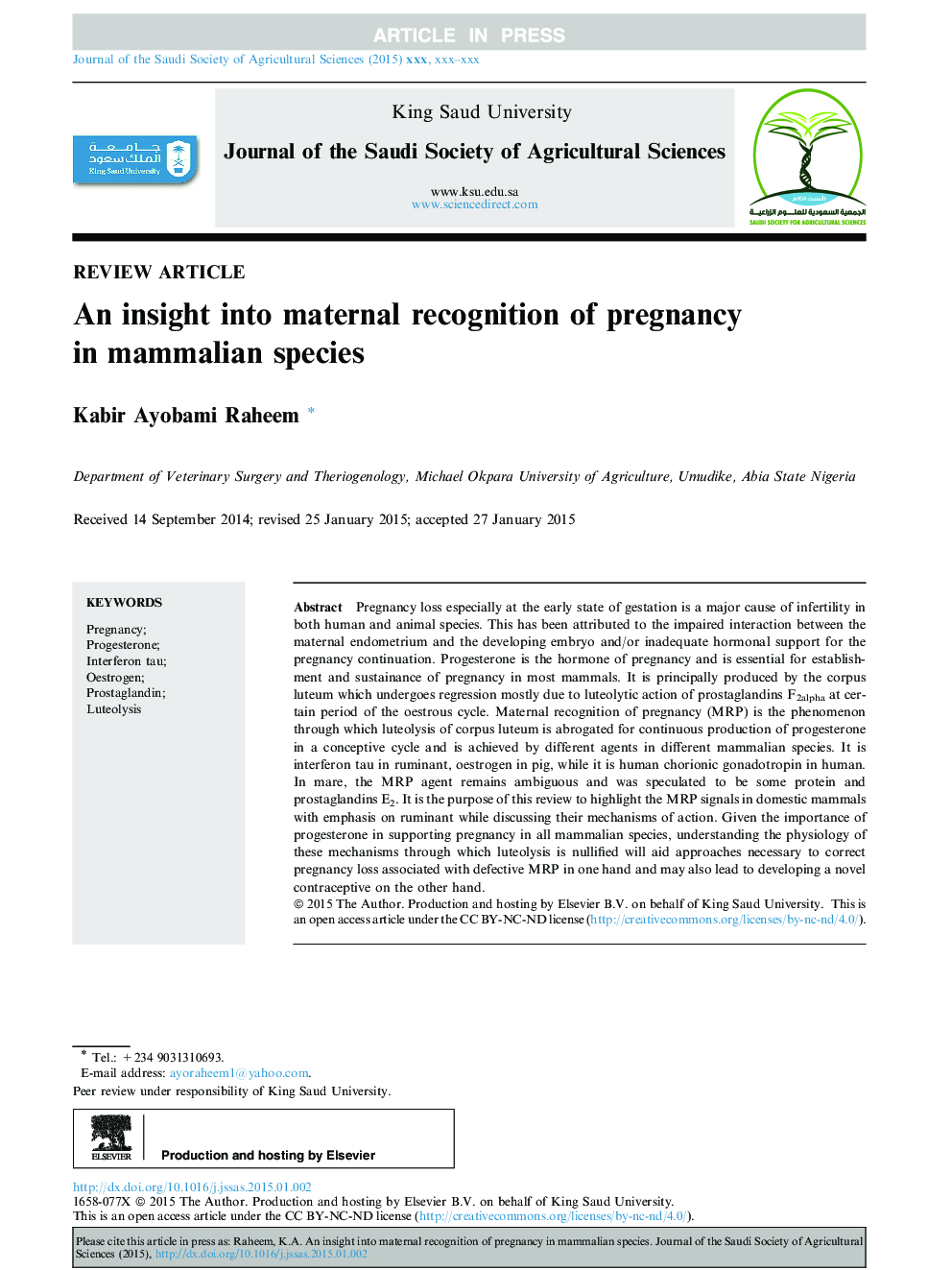| Article ID | Journal | Published Year | Pages | File Type |
|---|---|---|---|---|
| 8876410 | Journal of the Saudi Society of Agricultural Sciences | 2017 | 6 Pages |
Abstract
Pregnancy loss especially at the early state of gestation is a major cause of infertility in both human and animal species. This has been attributed to the impaired interaction between the maternal endometrium and the developing embryo and/or inadequate hormonal support for the pregnancy continuation. Progesterone is the hormone of pregnancy and is essential for establishment and sustainance of pregnancy in most mammals. It is principally produced by the corpus luteum which undergoes regression mostly due to luteolytic action of prostaglandins F2alpha at certain period of the oestrous cycle. Maternal recognition of pregnancy (MRP) is the phenomenon through which luteolysis of corpus luteum is abrogated for continuous production of progesterone in a conceptive cycle and is achieved by different agents in different mammalian species. It is interferon tau in ruminant, oestrogen in pig, while it is human chorionic gonadotropin in human. In mare, the MRP agent remains ambiguous and was speculated to be some protein and prostaglandins E2. It is the purpose of this review to highlight the MRP signals in domestic mammals with emphasis on ruminant while discussing their mechanisms of action. Given the importance of progesterone in supporting pregnancy in all mammalian species, understanding the physiology of these mechanisms through which luteolysis is nullified will aid approaches necessary to correct pregnancy loss associated with defective MRP in one hand and may also lead to developing a novel contraceptive on the other hand.
Related Topics
Life Sciences
Agricultural and Biological Sciences
Agricultural and Biological Sciences (General)
Authors
Kabir Ayobami Raheem,
